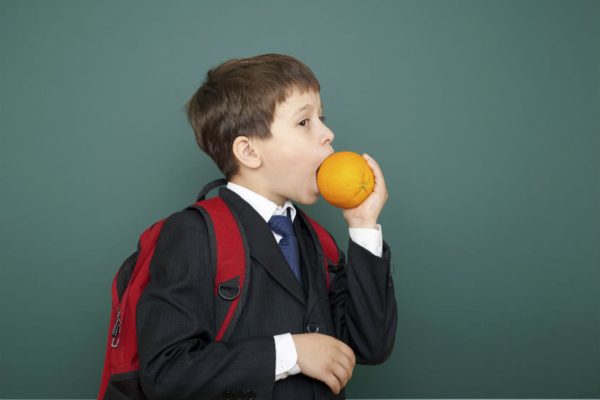In Texas this school year, we’re likely to see between 15 and 20 percent of teens with obesity, and more than 15,000 cases of preventable forms of youth diabetes. We can do better and it starts with the messaging teens receive.
School administrators and parents currently try to explain to teens how their food choices now could have harmful consequences later. But this approach is not the best way to address teen health. Teens do not value future outcomes the same way adults do.
What’s more, the standard methods of promoting school health — the all-school assembly, the health class lessons — can feel to teens like adults are telling them how to make their personal choices. The more adults try, the more teens want to do the opposite.
What if there were a way to channel teens’ natural rebelliousness into a force for good?
Many adults know that food companies target kids and try to get them hooked from a young age. For instance, they make food addictive by combining crunchy with soft textures, or by increasing sugar and salt content. Their scientists specifically aim to make foods “craveable” — difficult to resist, regardless of whether you’re hungry. They create cartoons to make kids ask for junk before they know any better, and they use labeling to make foods appear healthier than they really are.
Bottom line: Big Food is, in many ways, the new Big Tobacco.
Take, for example, the chocolate milk sold in Texas public schools. They make the chocolate milk have lower fat content than regular milk so they can label it “low fat.” But they add lots of sugar, making it much less healthy. It trains kids’ palates to expect more sweetness than is natural in most foods, all while making them think it’s the healthy option.
We conducted a study where we simply told teens facts like these and asked the teenagers to reflect on them. And it has a clear implication. If you want to be controlled by rich, company execs who make money getting children addicted to soda and junk food, but won’t eat it themselves, then go ahead and eat those foods.
If you want to make your own decisions, and fight back against injustice and hypocrisy, then drink water or eat healthier food. It’s the kind of message that resonated with teens.
We called it the “harnessing adolescent values” approach. We evaluated it in a randomized experiment with approximately 500 eighth-graders in Texas. The results were striking: The group who got the new treatment showed a 9 percent reduction in junk food calories when the principal offered kids junk food or healthy food the next day.
What’s more, a group who got more traditional health educational materials, like diagrams from a textbook, looked no different from a group who got no nutritional information.
Simply put, the traditional approach to nutrition education did nothing.
Could this new approach be the way to move forward? Perhaps. If so, then schools and districts could improve health in a way that feeds into schools’ bottom line. Students with good nutrition learn more and have better behavior.
But because scientifically addictive junk foods are everywhere, it will also be necessary to connect a new approach with proven methods to change the environment.
For example, some researchers have advocated making small changes such as rearranging the salad line so teens have to walk past it, or putting the sugary juice at the back of the fridge, to nudge students away from poor food choices without stepping on their autonomy. And policymakers can help too by targeting detrimental practices, such as preventing soda companies from creating “pouring rights” contracts that put these sugary drinks in low-income schools.
Teens need to feel respected and admired. Living in line with values like making the world a better place helps them feel that way. Just explaining basic health information to them, much of which they already know, doesn’t. As a society, we should give teens the health information they need, but in a way that lets them feel like the kind of person who wants to put it into action.
David S. Yeager is an assistant professor of developmental psychology at The University of Texas at Austin and the co-chair of the Mindset Scholars Network. Cintia Hinojosa is a 2014 Dean’s Distinguished Graduate of The University of Texas at Austin and works at the University of Chicago Booth School of Business. Christopher Bryan was the lead author on the research described in this article.
A version of this op-ed appeared in the Houston Chronicle and the Dallas Morning News.
To view more op-eds from Texas Perspectives, click here.
Like us on Facebook.




